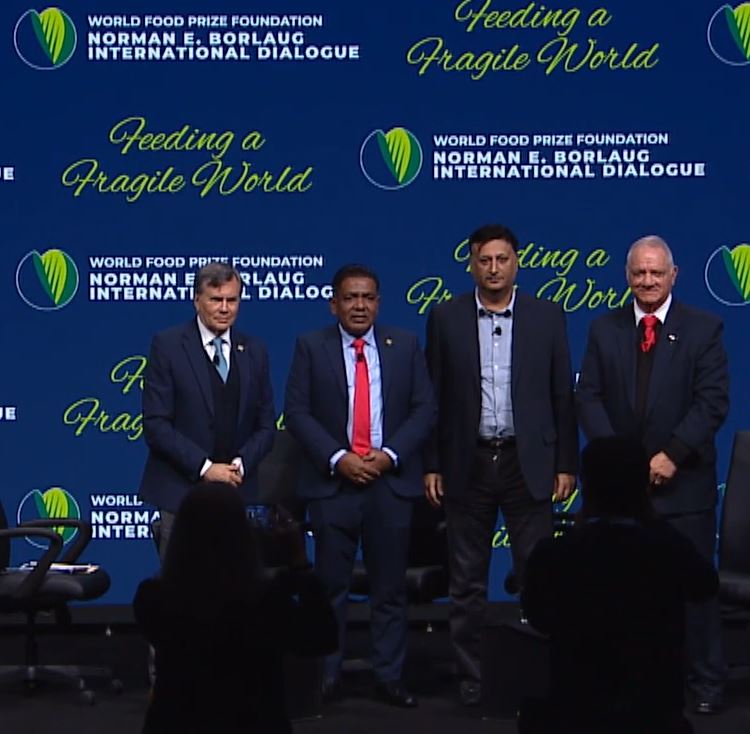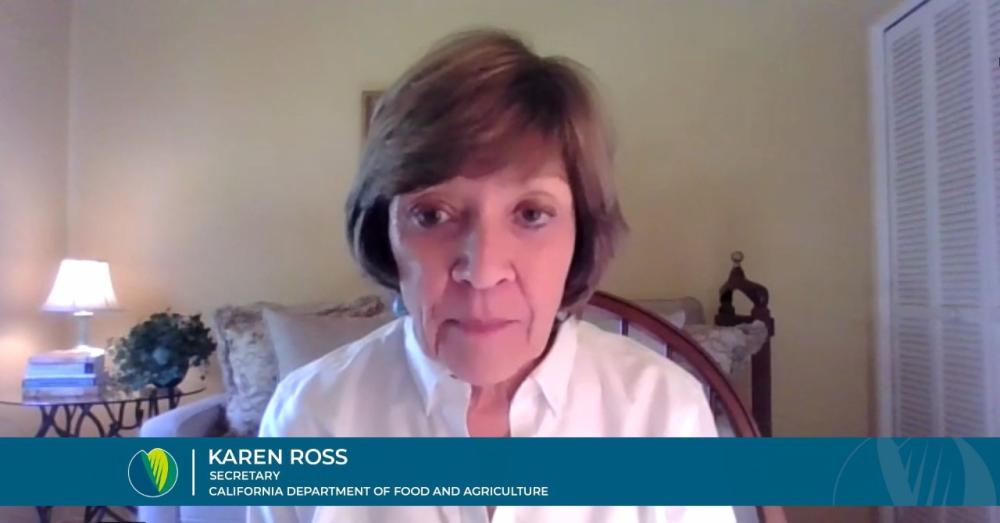Knowledge-intensive agriculture is key to facing climate change, affirm ministers during IICA-organized event at Borlaug International Dialogue

Des Moines, Iowa, 21 October 2022 (IICA) - Climate change is here to stay making it necessary to implement science-based transformations that favor farmers and guarantee greater productivity and resilience, affirmed senior agricultural officials from the Americas and Asia at the Borlaug International Dialogue, taking place in Des Moines, Iowa, USA.
Considered the largest international forum on agriculture, the Dialogue consists of a series of discussions hosted by the World Food Prize Foundation (WFP) with the participation of government officials, private-sector representatives, international organizations, agricultural producers, academics, scientists, educators and students.
This year’s Dialogue is themed “Feeding a Fragile World” due to the severe simultaneous impact on the global agri-food systems of the Covid-19 pandemic, the war in Eastern Europe and climate change. The different sessions focus on the relationship between agriculture, food security and climate change, with the goal of building global alliances against hunger and malnutrition.
The session entitled “Food Governance in an Unprecedented Era” discussed how to guarantee an adequate functioning of the agri-food systems in times of simultaneous crises that have severe consequences for individual countries and for the world. The session was organized by the Inter-American Institute for Cooperation on Agriculture (IICA) in conjunction with WFP.
Manuel Otero, Director General of IICA, moderated the session in which Zulfikar Mustapha, Minister of Agriculture of Guyana; Carlos Salcedo Zaldivar, Minister Counselor for Agricultural Affairs of Panama; Karen Ross, Secretary of the California Department of Food and Agriculture (CDFA); and Shahryar Ali Khan, Minister of State at the Federal Government of Pakistan participated.
Otero posed the discussion questions, which referred to the impact that the current crises are having in each country and what public policies are being implemented to deal with shocks related to health, conflict and climate.
The importance of a long-term vision
Salcedo detailed the State Policy for Development of the Agricultural Sector currently in discussion between the Panamanian government and different stakeholders.
“Producers have demanded that we hold this debate, to which we have incorporated different international organizations. IICA played a key role in satisfying this demand to guarantee a state policy that provides legal certainty to agriculture”, commented Salcedo, who explained that education, financing, productivity, market access, technology and institutional strengthening are the central themes.
“The discussion refers to a long-term vision and will constitute the basis for attacking the problems of social inequality, bringing technology to the production sectors and reducing rural poverty. This state policy will be the point of reference for future administrations”, he added, highlighting the strategic nature of the agriculture sector.
Mustapha, who emphasized the importance of financing for development and the need for concrete actions, stated that the current global food crisis requires a transformation of all points along the food chain. “Today, there are countries that suffer from food shortages even though they have money. If we don’t act together, we are all going to suffer the consequences”, he warned.

The Minister from Guyana explained that in his home country and across the Caribbean, they are working to reduce the dependency on food imports and exposure to climate shocks.
“Climate change is very real for us. Last year, Guyana suffered one of the most devastating floods in history”, explained Mustapha, who underscored the need to promote insurance that covers the loss suffered by farmers in the face of more frequent natural disasters.
“Guyana’s economy has grown incredibly thanks to oil and gas, but it is essential that we diversify. Today, we produce 60% of the food we consume, but we are not satisfied”, he acknowledged.
Secretary Ross from California also referred to the effects of climate change. “In 2020 we experienced the worst wildfire season in California history. For 30 days the central valley, which is our most productive area, was covered in smoke and ash. This was dramatic for a state that produces one-third of all vegetables and two-thirds of all fruit for the United States”.
Ross, highlighting the importance of youth and women in rural areas, stated that California will continue to make investments that favor the resilience of agriculture, the transition to carbon-neutrality, the reduction of methane emissions from livestock, the improvement of soil health and energy efficiency.
In turn, Ali Khan revealed that 67% of the population of Pakistan works in agriculture and that the impact of climate change on the country is severe. “We need more technology for small-scale farmers to ensure their resilience”, he warned.
More information:
Institutional Communication Division.
comunicacion.institucional@iica.int